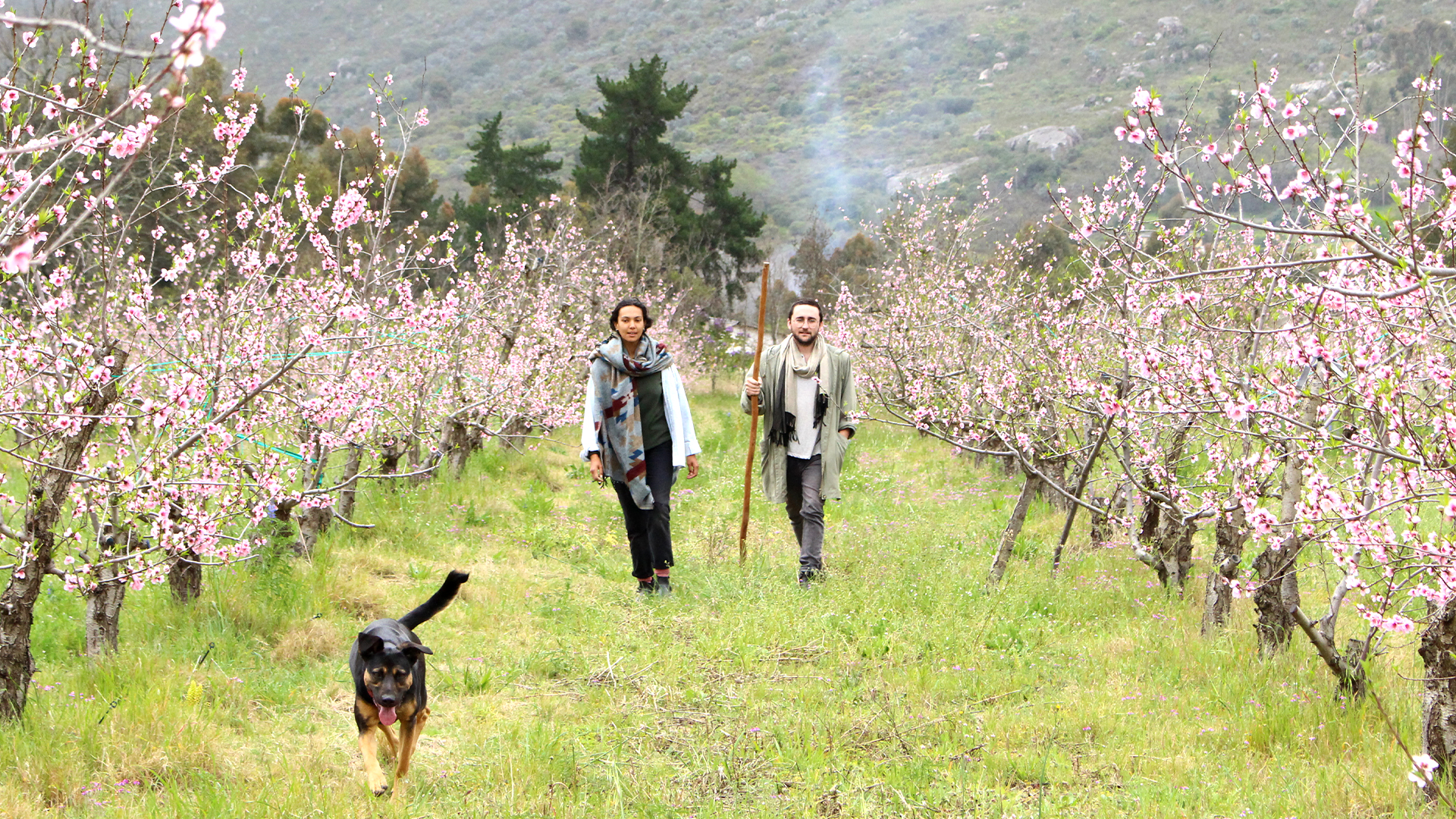Farming, in the right hands, can make the world a better, happier place
In a valley in the shadow of the Piketberg, on a farm named Sababa, the earth yields its promise to those who harvest.
Early in the morning, when the mist is still low on the ground, they head into the fields to gather the crops.
Her name is Bushrah, which is Arabic for “good news”; his name is Nevau, after the mountain on which Moses stood when he gazed upon the Promised Land. And Sababa?
It is an Israeli term, the equivalent of cool, sweet, in the groove, as might be used to describe the way of life on the West Coast.
But for Bushrah Hendricks and Nevau Levanon, who met at a house party in Cape Town and were married at a ceremony on the farm, Sababa has come to stand for something else.
Something bigger than the two of them, bigger than the land, bigger than all of us put together. The ideal of a happier, healthier planet, where humans live in harmony and abundance with nature. It is a great big global ideal, but every little local action counts.
When the young couple moved onto Sababa, which is owned by Nevau’s parents, Gaby and Erica, there was a strict condition attached.
“They said we need to earn an income and put food on the table for ourselves,” explains Bushrah. “We are so grateful to them for allowing us the space to nurture the things we love.”
As it turned out, Bushrah and Nevau found a way to put food on the table for other people too.
Their small-scale organic farming enterprise is called Those Who Harvest, and it supplies seasonal weekly boxes of fruit, vegetables, and herbs to customers in Cape Town, Piketberg, and the nearby farming community of Piket-Bo-Berg.
The colourful array of produce includes Cayenne chilli peppers, pomegranate, Asian long beans, elephant garlic (a milder, gentler variety of the clove), Thai lime, grapefruit, curly kale, and three varieties of sweet, plump cocktail tomatoes.
All of it hand-picked, grown without chemicals and pesticides, and harvested according to the Nepali principle of Maya, which means pure and unconditional love.
“If we can grow food that we would like to eat, and we can grow enough to sell,” says Nevau, “then it all works out quite nicely.”
In an ideal world, they would prefer not to have to bring money into the equation, says Bushrah — it would be better to give the harvest away to those in need, or use it as a means of barter for everyday necessities.
At the same time, if you can make a living from the earth, then you are playing your part, in a small way, in helping the earth to live. In sowing the seeds of sustenance, you are perpetuating the cycle of sustainability.
There is a famous saying in international farming circles, says Nevau. “You do what you can, with what you have, where you are, and you do it now.”
Before moving to Sababa with Bushrah, Nevau worked as a social media strategist and marketer, with a thriving side-line as a techno deejay, spinning mesmerising, meditative rhythms at festivals such as AfrikaBurn and Rocking The Daisies.
But he settled naturally into organic farm life, having watched and learned from his father, an agronomist and irrigation consultant, who took the family with him on working sojourns to India, Israel, and elsewhere in Africa.
Bushrah, meanwhile, studied engineering at Stellenbosch, but she too was drawn to life on the land.
“I remember my grandfather telling me that only city people plant grass,” she says. “We should rather plant trees, for food and shade. There’s that a-ha moment where you make the connection between the food you eat, and where it comes from.”
For most of us, that means the supermarket, the last link in the chain that connects the retailer to the distributor to the supplier to the agent to the farmer.
“Why can’t we just get it from those who harvest, directly?” asks Nevau. The hope of Those Who Harvest is that it can form part of a countrywide network of growers who produce organic food that is accessible and affordable for everyone, through a model known as Community-Supported Agriculture, or CSA.
This allows consumers to “subscribe” to the harvest of a farm, and in that way bring down costs and mediate the risks of farming.
In many parts of the world, organic farming is the age-old default practise, whether for individual subsistence or harvesting for the market. Yet the perception lingers.
“You see the word organic, and you know it’s going to be more expensive and exclusive,” says Nevau. “We would like to change the stigmas surrounding organic farming. It’s not something that is done only by hippies. It can be done on a large scale, in a way that is more efficient, and better for the planet and its people.”
For Bushrah and Nevau, farming is a labour of love, from the nurturing of the soil to the planting of the seedlings to the picking of the crops, gently and carefully, so that the plant itself is not disturbed.
“On this tiny section of the West Coast,” says Bushrah, “we can look to nature to assist us in taking care of the land. In that way, we can learn to be comfortable, to be happy, and to create a better environment together.”
And here at Sababa, in the shadow of the valley of the Piketberg, the good news is that the land, tended by those who harvest, is living up to its promise.
For more fascinating stories about the remarkable people and places of the West Coast, watch Weskubewoners, brought to you by BrightRock, on kykNET every Thursday at 21:00.

Leave a Reply